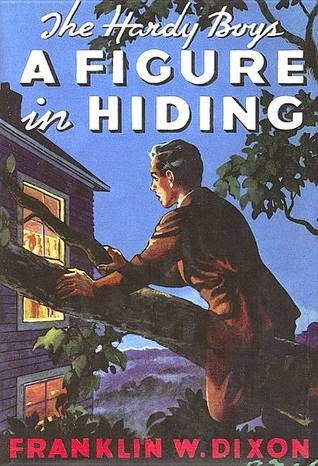I am very fond of series fiction. I always have been, going back to The Hardy Boys and their (much) lesser known peers, The Walton Boys (not the ones on the mountain). I probably will be for as long as I am able to read. I’m having a problem, however, with that wonderful and delectable corner of the genre or whatever you want to call it where the new book in the series builds upon what has happened before. More often than otherwise, a year or more passes between books in the series, I’ll go to pick a new one up, and I have no freaking idea what happened previously. I can remember the main characters, and usually a supporting character or two, but past that…it can be really hit or miss.
Some authors are aware of this and do an excellent job of doing a back-and-fill to bring new readers (and yes, older, forgetful ones) up to snuff without bringing the narrative to a grinding halt and having the characters engage in an awkward dialogue designed to summarize the mayhem that has occurred over the past x number of books. Others don’t. That’s fine. But let’s not put too fine a line on it. We have an aging population and not everyone who reads a series is necessarily going to remember, in the words of my favorite limerick, who was doing what and to do twelve months ago. Accordingly, when Detective M shows up in the squad room sans the ring finger on his right hand there are a few of us who might not recall how that happened.
If you write series fiction, why should you care? Someone probably has added the information to a Wikipedia entry somewhere that lays it all out. Maybe so. I would submit to you, though, that most readers don’t want to have to stop in the middle of the narrative and look things like that up. If I had ten bucks for every reader who has told me, “Yeah, I used to read them but it got so I couldn’t figure out what was going on” I’d have a house next door to Sandra Bullock in New Orleans’ Garden District. Well, maybe a room over a garage in rear of the house next door to Ms. Bullock’s; but I hope you take my point.
Here is what I would request of those wonderful authors who labor mightily in the grammar mine of series fiction, and yes, those who publish them, and to whom I have been grateful for over fifty years and will continue to be so: take a cue from your cousins in the television medium. Each time I turn on an episode of Justified or Hell on Wheels or 24 any of the other half dozen or so dramatic series I watch the first thing I hear and see is, “Previously on (you fill in the blank)…” and short clips of what has happened before, as are relevant to the current episode, are presented. Could we have a “what has gone before” introduction of anywhere from a few paragraphs to two pages to refresh our memories — if you don’t do so elsewhere in the narrative — in the latest installment of your series? And maybe, if appropriate, could we have a listing of characters as well once you have more than say, seven folks with histories bumping into each other on a regular basis over the course of several books? I would consider it a favor to me, and to your legions of readers, acquired and potential.
So tell me: is this a problem? Or I am just grumpy today? Or both? Or neither? Is what I advocate reasonable? Or is it too much trouble to go to for what is a minor problem?


